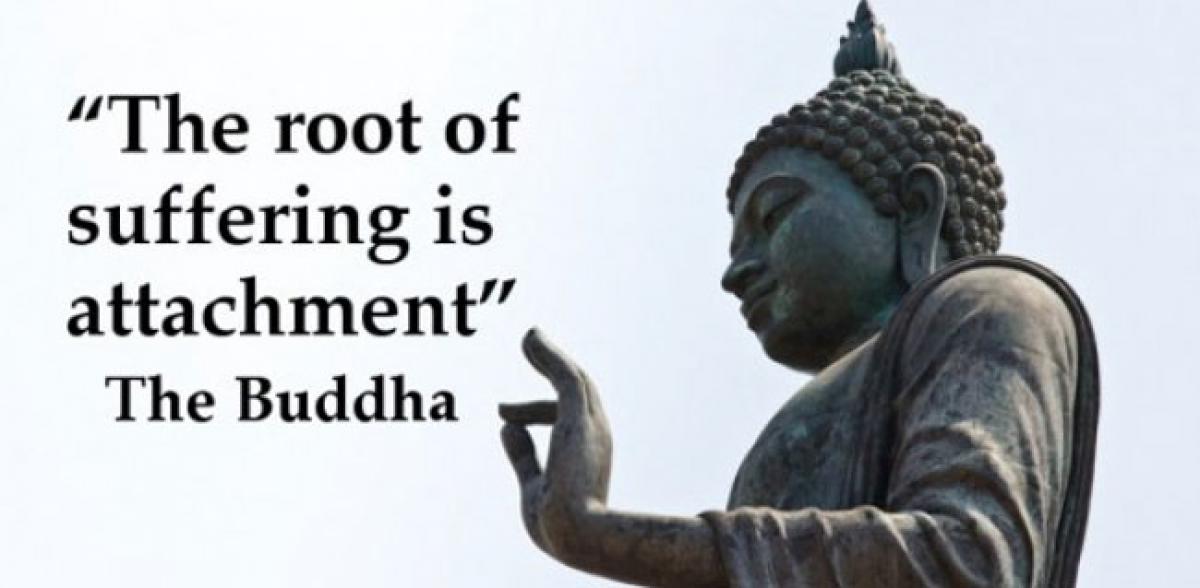Detachment brings emotional safety

Many spiritual paths advocate a mental state called detachment, in which a person moves away from worldly concerns and becomes an observer of life
Many spiritual paths advocate a mental state called detachment, in which a person moves away from worldly concerns and becomes an observer of life. This is considered to be a means of reaching an inner goal, because it frees you from distractions and conflict. Raja Yoga also teaches ‘detachment’, but the image used to explain the concept is not that of a dusty-footed pilgrim scaling a mountain, but of a lotus flower.
The main thing about a lotus flower is that it has its roots in the mud. It cannot grow without the mud and yet its petals are pristine. This is detachment. Detachment is being close to what you most want to be free of and using it to make you grow; not separating yourself from anything.
Take your own personality: Usually, there are aspects of yourself that either you are unaware of, or you just don’t like. Unconsciously, you distort them into something attractive. Hence hard work in a person often denotes fear of disapproval. This is the direct opposite of detachment: doing something, not for its own value, but to enhance your personal position.
The lotus flower doesn’t turn mud into anything. Mud is mud. Yet, mud also has nutrients needed to aid the flower’s growth. It is the same for us. We are in a situation that we don’t like – ‘in the mud’. And yet, it is probably the most secure position there -- if we could only recognise it, not distort it, and let it ‘grow us’.
Alternatively, we want to be free of someone, to be alone, but the relationship has somehow caught hold of us. The person now close to us is probably the best teacher we could have, if we were only able to see the ‘nutrient’ in their presence; if we could recognise too, that we are probably focusing on a very minor aspect of their personality, and totally disregarding the rest.
Detachment is freedom from slants and bias of this kind. It means seeing the whole picture. Or again, we have made a mess of something, exposed ourselves to criticism: usually upsetting until there is the ability to be detached from the task at which we have failed, to stop possessing it and just appreciate its own inherent value and recognise that it will get done anyway. Painting for painting’s sake, for the beauty of painting, not for the beauty of ‘my’ painting. And painting, certainly, will always continue, quite regardless of me.
So detachment means standing right next to our ‘enemies’ and responding to them with sincerity and effort and seeing how, suddenly, they disappear. On the other hand, detachment also means not touching, and moving right away so that you can see a thing properly. Being an emotional weatherman, being able to gauge and predict and prepare.
Detachment is to be free of time, and most importantly to be free of the distorting perspective that places ‘i’ at the centre of the universe. You begin to realise that when someone talks to you, you are not necessarily the focus of their attention, but that they are bringing with them a hundred other thoughts and concerns.
Detachment is a virtue. It brings emotional safety, realism and refreshment. It makes others feel free with you, free to come and go without a fuss.
Brahma Kumaris








